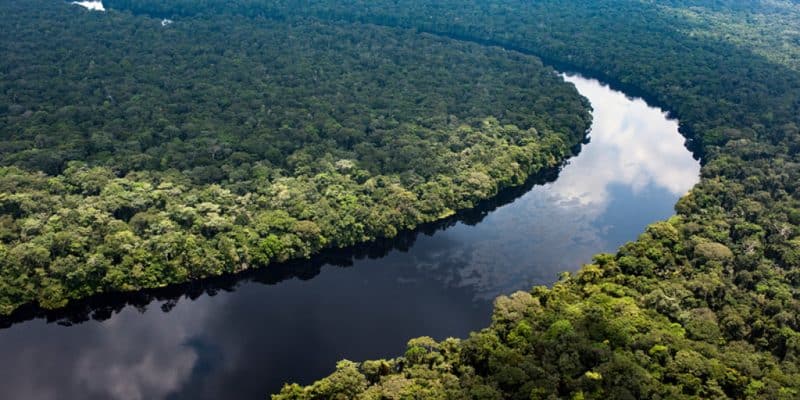Raoul Monsembula, professor of biology at the University of Kinshasa and regional coordinator of Greenpeace in Central Africa, has just discovered a new species of fish in the Congo River. Named Clarias Monsembulai, after its discoverer, this new species is one of thousands already recorded in the Congo basin. A region threatened by a gigantic oil extraction project.
Raoul Monsembula will long remember the rainy day when he and his team brought back a new specimen of catfish from a river in the Salonga Park in the northwest of the Democratic Republic of Congo (DRC). “It took arriving in New York and a real fuss about this fish for me to realise that it was indeed a new species,” explains the scientist, who is also a professor of biology at the University of Kinshasa and Greenpeace’s regional coordinator for Central Africa.

The Clarias monsembulai is distinguished by its exceptionally long maxillary barbels © Greenpeace
The medium-sized brown specimen, with large whiskers, logically joins the Clarias genus of air-breathing catfish, known throughout tropical Africa and Asia with 60 currently recognised species, 31 of which are endemic to African freshwater. Given the number of fishes captured, this new species must have long since populated the waters of the Congo Basin, a region with over 10,000 plant species, 400 mammal species, 1,000 bird species and 1,250 fish species.
Barely discovered, the Clarias Monsembulai is threatened
The discovery of the Clarias Monsembulai, named after the scientist who discovered it, comes in a region targeted by a gigantic oil project. On Monday 18 July 2022, the DRC government put twenty-seven oil blocks and three gas blocks for sale, spread over several parts of the country. Nine of the oil blocks up for auction straddle protected areas. This includes the Central Cuvette, a complex rich in peatlands and biodiversity that contains about 30 gigatonnes of carbon dioxide (CO2), the equivalent of three years of global emissions.
Read also–
“What is true is that there are many endemic species in the fresh waters of the Congo basin. We need to keep this ecosystem intact, because the more we destroy it, the more we lose our identity, our culture. These species are part of our diet and many people live off them. The destruction of peatlands and forests due to mining and oil exploitation, which do not benefit the people, is a huge loss,” warns Dr Raoul Monsembula.
Boris Ngounou








You must be logged in to post a comment.